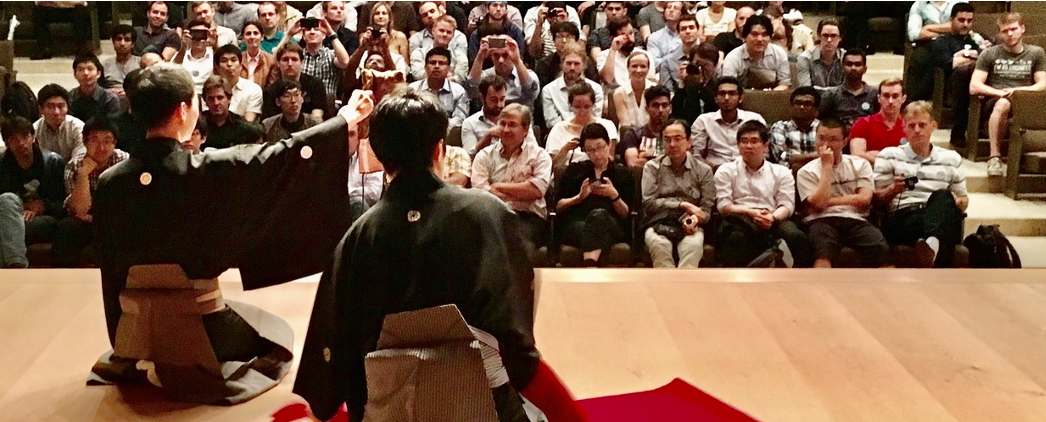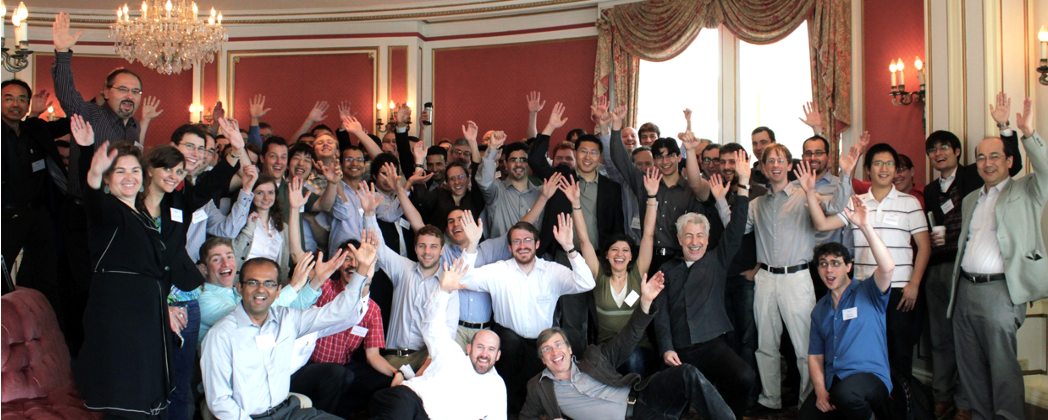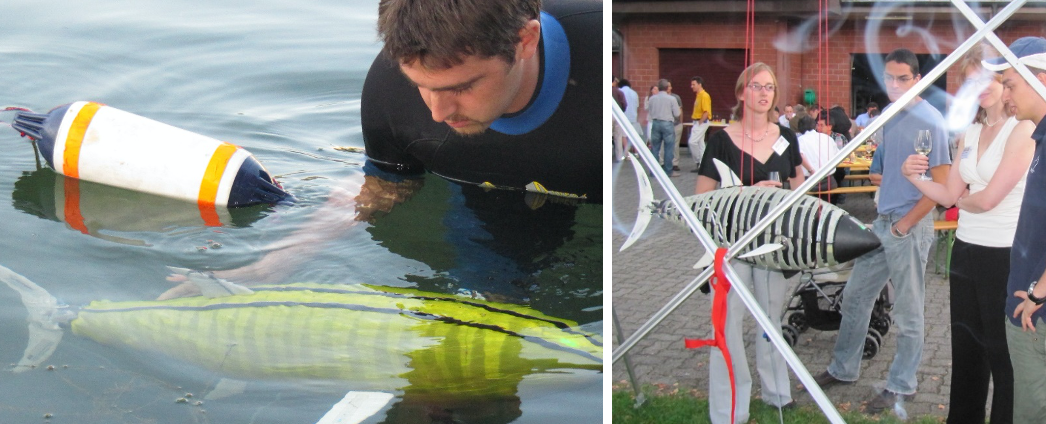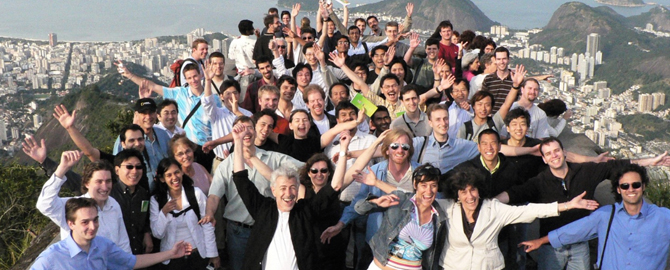Date and time:
February 4 at 7:00am (PST)/ 4:00pm (CET)/ 11:59pm (JST)
Live Stream: Zoom Webinar (https://zoom.us/j/92814075912)
Live questions and discussion: Slido (https://app.sli.do/event/a6lbisqr)
Moderator: Marco Hutter (ETH Zurich)
Panelists: Avik De (Ghost Robotics), Sangbae Kim (MIT), Claudio Semini (Istituto Italiano di Tecnologia), Benjamin Swilling (Boston Dynamics), Marco Hutter (ETH Zurich)
Front Row Participants: Katie Byl, Sonia Roberts, Hae-Won Park, Peter Fankhauser, Xingxing Wang
Title: Quadruped Robotics on the Rise
Video on Bilibili: https://www.bilibili.com/video/BV1Tt4y1z7uW/
Video on YouTube: https://youtu.be/A8xSlBAQtDo
Quadrupedal robotics has reached a level of performance and maturity that enables some of the most advanced real-world applications with autonomous mobile robots. Driven by excellent research in academia and industry all around the world, a growing number of platforms with different skills target different applications and markets. We have invited a selection of experts with long-standing experience in this vibrant research area. The aim is to provide an opportunity to discuss and learn about the ongoing work, about what has been solved, and what remains as open research problems in quadrupedal robotics. In particular, the panel will focus on the following issues:
- Design and actuation concepts.
- Locomotion control using model based and machine learning algorithms.
- Applications domains: today and tomorrow.
- Open questions for industry and academia.
Marco Hutter (Moderator)
Marco Hutter (Moderator)

Marco Hutter is Professor for Robotics Systems at ETH Zurich and co-founder of ANYbotics AG, a Zurich-based company developing legged robots for industrial applications. Marco’s research interests are in the development of novel machines and actuation concepts together with the underlying control, planning, and learning algorithms for locomotion and manipulation. Marco is part of the National Centre of Competence in Research (NCCR) Robotics and NCCR Digital Fabrication and PI in various international projects (e.g. EU Thing) and challenges (e.g. DARPA SubT). He got an ERC starting grant and was awarded the IEEE Early Career Award for his contributions to legged robots.
Avik De

Avik De is co-founder and CTO of Ghost Robotics, a startup company commercializing legged robotics in Philadelphia. The company currently has two products, a 45kg quadruped aimed at industrial applications, and a 12kg quadruped aimed at research applications. Previously, Avik completed a postdoc at Harvard SEAS advised by Rob Wood, where he researched design of micro-scale flapping robots, as well as strategies for their control. He received his PhD in Sep 2017, at the GRASP laboratory (Kodlab) in the University of Pennsylvania advised by Dan Koditschek. The main thread tying all of his work has been bio-inspired design and control strongly anchored in empirical robotics. His research has focused on examining the strengths and weaknesses of modular and hierarchical control strategies, as well as demonstrating efficient and effective control of dynamic locomotion in a way that generalizes across platforms (quadruped, tailed biped, ...) and behaviors (hopping, running, ...).
Sangbae Kim

Sangbae Kim is the director of the Biomimetic Robotics Laboratory and a professor of Mechanical Engineering at MIT. His research focuses on bio-inspired robot design achieved by extracting principles from animals. Kim’s achievements include creating the world’s first directional adhesive inspired by gecko lizards and a climbing robot named Stickybot that utilizes the directional adhesive to climb smooth surfaces. TIME Magazine named Stickybot one of the best inventions of 2006. One of Kim’s recent achievements is the development of the MIT Cheetah, a robot capable of stable running outdoors up to 13 mph and autonomous jumping over obstacles at the efficiency of animals. Kim is a recipient of best paper awards from the ICRA (2007), King-Sun Fu Memorial TRO (2008) and IEEE/ASME TMECH (2016). Additionally, he received a DARPA YFA (2013), an NSF CAREER award (2014), and a Ruth and Joel Spira Award for Distinguished Teaching (2015).
Claudio Semini

Claudio Semini is the head of the Dynamic Legged Systems (DLS) lab at Istituto Italiano di Tecnologia (IIT) that developed a number of high-performance hydraulic robots, including HyQ, HyQ2Max, and HyQReal. He holds an MSc degree from ETH Zurich in electrical engineering and information technology. He spent 2 years in Tokyo for his research: MSc thesis at the Hirose Lab at Tokyo Tech and staff engineer at the Toshiba R&D center in Kawasaki working on mobile service robotics. During his PhD and subsequent PostDoc at IIT, he developed the quadruped robot HyQ and worked on its control. Since 2012 he leads the DLS lab. Claudio Semini is the author and co-author of more than 100 peer-reviewed publications in international journals and conferences. He is also a co-founder of the Technical Committee on Mechanisms and Design of the IEEE-RAS Society. He is/was the coordinator/partner of several EU-, National and Industrial projects (including HyQ-REAL, INAIL Teleop, Moog@IIT joint lab, etc). His research interests include the design and control of highly dynamic and versatile legged robots, locomotion, hydraulic drives, and others.
Benjamin Swilling

Benjamin Swilling is the Mobility & Behavior Group Lead on the Spot project at Boston Dynamics. He is Staff Roboticist and joined Boston Dynamics in 2005 and specializes in robot dynamic balance and fault tolerant systems. During his time at Boston Dynamics he has worked on such projects as Spot, Atlas, Petman, RHex, snake robots, and humanoid simulation. Prior to joining Boston Dynamics, he received a mechanical engineering S.M. from MIT in 2005 and a B.S. in mechanical engineering from Rensselaer Polytechnic Institute in 2001.






